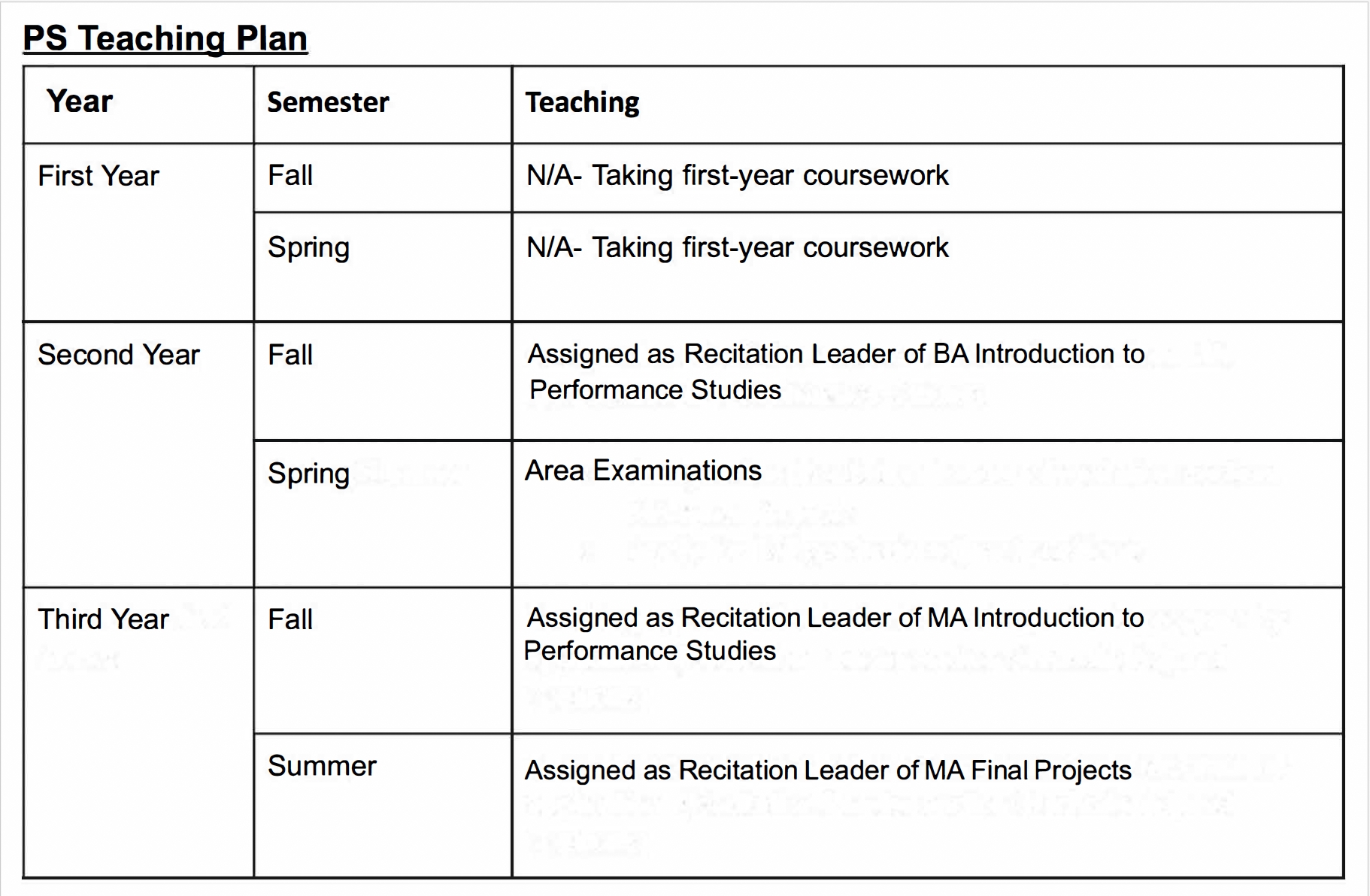Eligibility
Doctoral students become eligible to teach in the department after successful completion of their 1st year in the program. Prior to starting their second year in the program, they are given teaching assignments as recitation leaders for the undergraduate “Introduction to Performance Studies” lecture (PERF-GT 101.001) offered in the Fall term. After successful completion of these assignments, in the third year they will be assigned as recitation leaders for the graduate “Introduction to Performance Studies” lecture (PERF-GT 1000.001) offered in the Fall term. The following semester the same cohort of students are assigned as recitation leaders for the MA “Final Projects” Lecture (PERF-GT 2000.001). After successful completion of these assignments, they will be eligible to apply for graduate adjunct openings in the undergraduate program as a recitation leader positions in the BA “Capstone Project” course PERF-UT 400.001.
Doctoral students interested in starting their teacher training with the department must opt into the program by January 31st of their first spring semester. If a second-year Ph.D. student opts out of the PS Teaching Program, vacant recitation sections will be posted and offered by application to Ph.D. students in good academic standing in years 3 and above.
